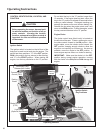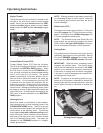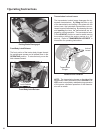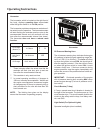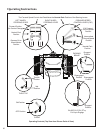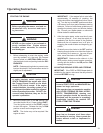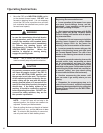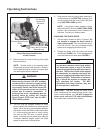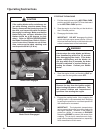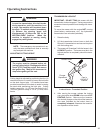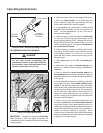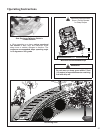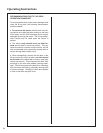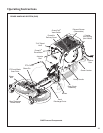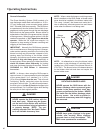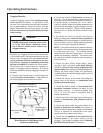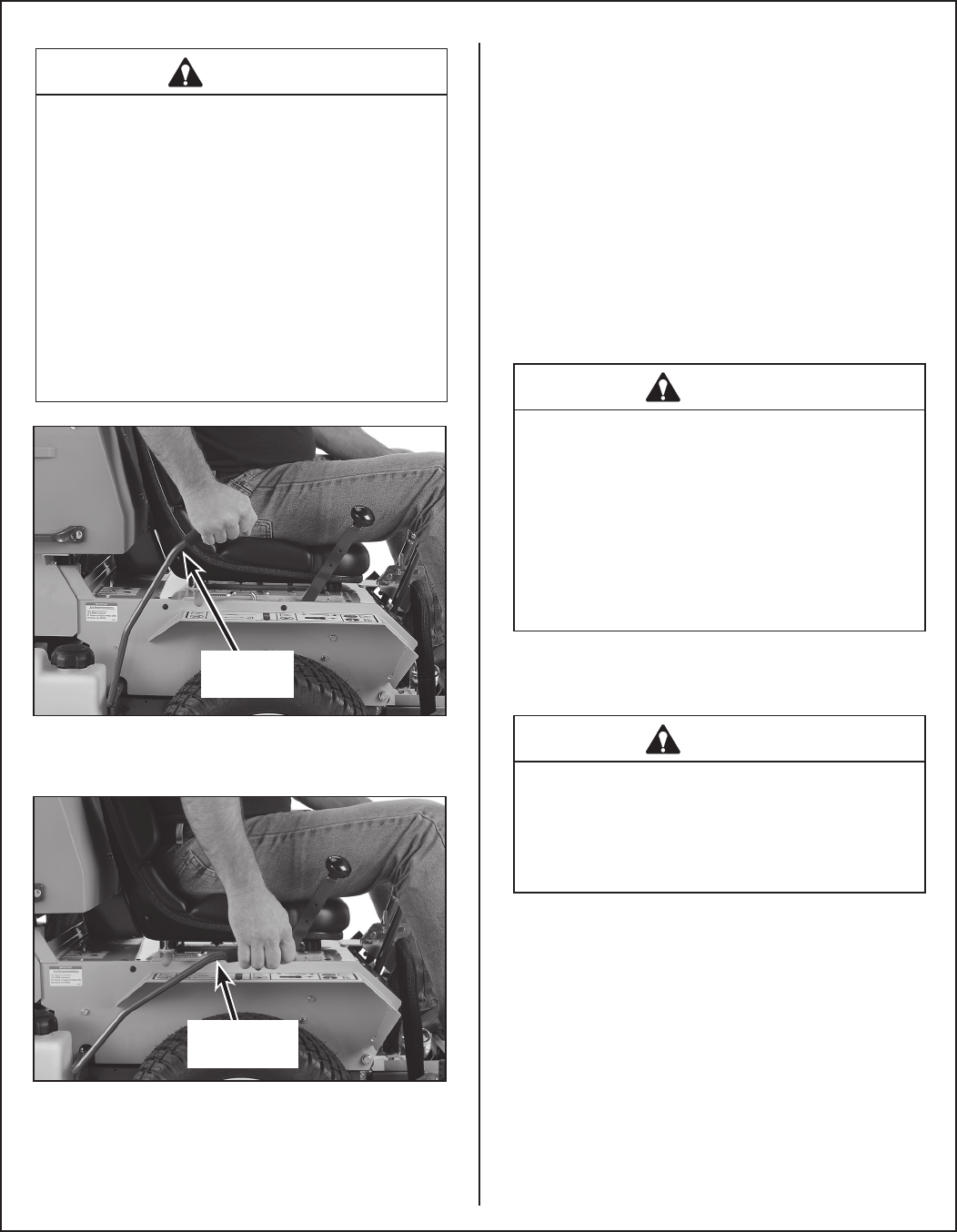
Operating Instructions
34
CAUTION
If the cutting blades strike a stationary ob-
ject while mowing, stop the mower imme-
diately, disconnect the spark plug wires, lift
the deck, and inspect the deck and blades
thoroughly for damage. Make sure that the
blade timing has not been dis turbed (the
blades should be at 90 degrees to each
other). Refer to REPLACING/RE PAIRING
the Blade Overload Shear Bolts in Mainte-
nance Instructions
if blades are out of time.
Also, make sure the blade retain ing nuts
are torqued to 60 lb·ft (81 N·m).
Engaged
Position
Blade Clutch Engaged
Disengaged
Position
Blade Clutch Disengaged
STOPPING THE MACHINE
1. Pull the steering levers to the NEUTRAL-PARK
posi tion and then move the FSC lever backward
to the NEUTRAL-PARK position.
2. Slow the engine to a fast idle; put the throttle in
the 1/2 throttle position.
3. Disengage the blade clutch.
IMPORTANT: DO NOT disengage the blade
clutch with high engine speed (above 1/2 throt-
tle) since the brake action on the blade drive will
cause increased wear of the brake band.
WARNING
A brake stops the cutter blades and blower
from freewheeling within ve (5) seconds
after disengaging the clutch. If the brake
sys tem malfunctions and the blades do
not stop within ve (5) seconds, the brake
should be adjusted or repaired before op-
erating the mower. Contact your Walker
dealer.
4. Slow the engine to idle, put throttle in IDLE po-
sition; and turn the ignition switch OFF.
WARNING
Remove the key from the ignition switch
when leaving the mower unattended. This
will prevent children and inexperienced
operators from starting the engine.
5. Engage the parking brake. Also, engaging the
parking brake is recommended when stopping
or parking the machine in a conned space with
little tolerance for movement.
IMPORTANT: The hydrostatic transmissions
lock to prevent the mower from rolling freely with
the engine stopped. However, if the mower is
parked on a slope, it is necessary to ENGAGE
the parking BRAKE to prevent the mower from
creeping. This is due to a small amount of slip-
page in the hydrostatic transmissions, especially
when transmission uid is warm.



